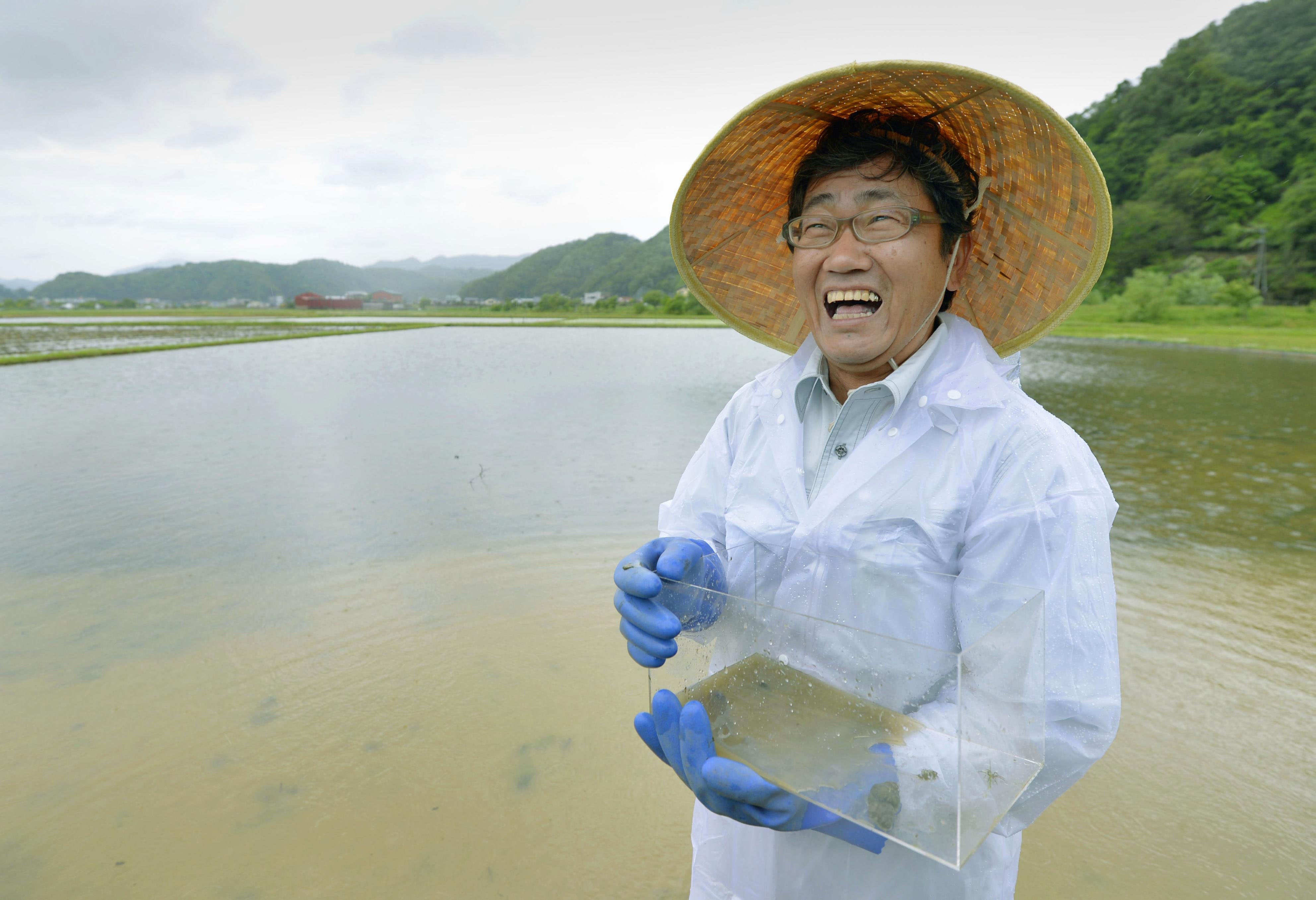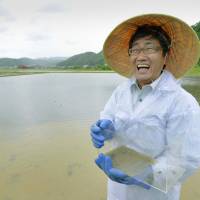A group of farmers in Toyooka, Hyogo Prefecture, that practices environment-friendly rice cultivation techniques views the arrival of storks as a sign they are growing a good product.
The storks, once extinct in Japan, are drawn to chemical-free rice paddies because they can find such prey as frogs and snakes, said Ichio Narita, one of the group’s leaders.
“When they occasionally come close to my tractor, I tell them to ‘hang tough’ like me,” the 57-year-old farmer said.
Japan’s postwar agriculture placed high priority on crop yields by encouraging the use of chemicals, fertilizers and the off-season drying of paddies. But calls for a fundamental review of this policy are growing.
“Rice feels less stress and grows strong if we don’t use chemical herbicides,” Narita said. “We don’t need any agricultural chemicals and so can produce rice that’s good for health.”
If farmers produce healthy rice, they can sell it at higher prices, allowing them to make a living despite cuts in output, Narita said. While rice cultivation involves the tough work of weeding, herbicides can be avoided if weeds are held in check by soil puddling, or cultivating the soil in saturated conditions. The group grows rice in deep paddies that are softer than usual so weeds can be removed with puddling equipment. They call the practice a “farming method that nurtures storks.”
It has been adopted as a town-wide project in the adjacent city of Santo in Asago.
“The storks came after five years,” said Akira Murakami, 66. “We took pictures of them because we felt as if our paddies had been accredited as chemical-free.”
Toyooka Mayor Muneharu Nakagai, 59, launched an initiative to adopt the method after visiting the German village of Ruehstaedt as a member of the Hyogo Prefectural Assembly in 2000.
Residents of the village along the Elbe River put boards and materials on top of their homes to encourage storks to build nests. This succeeded in attracting storks, which drew tourists to the area. This allowed the villagers to improve their living standards by selling related merchandise, showing the benefits of coexistence.
Nakagai became mayor in 2001, stressing that the use of agricultural chemicals should be cut to lure storks to the city’s paddies. He had storks imported from Russia and released them in 2005. About 80 of the birds are helping revitalize local agriculture and tourism.




